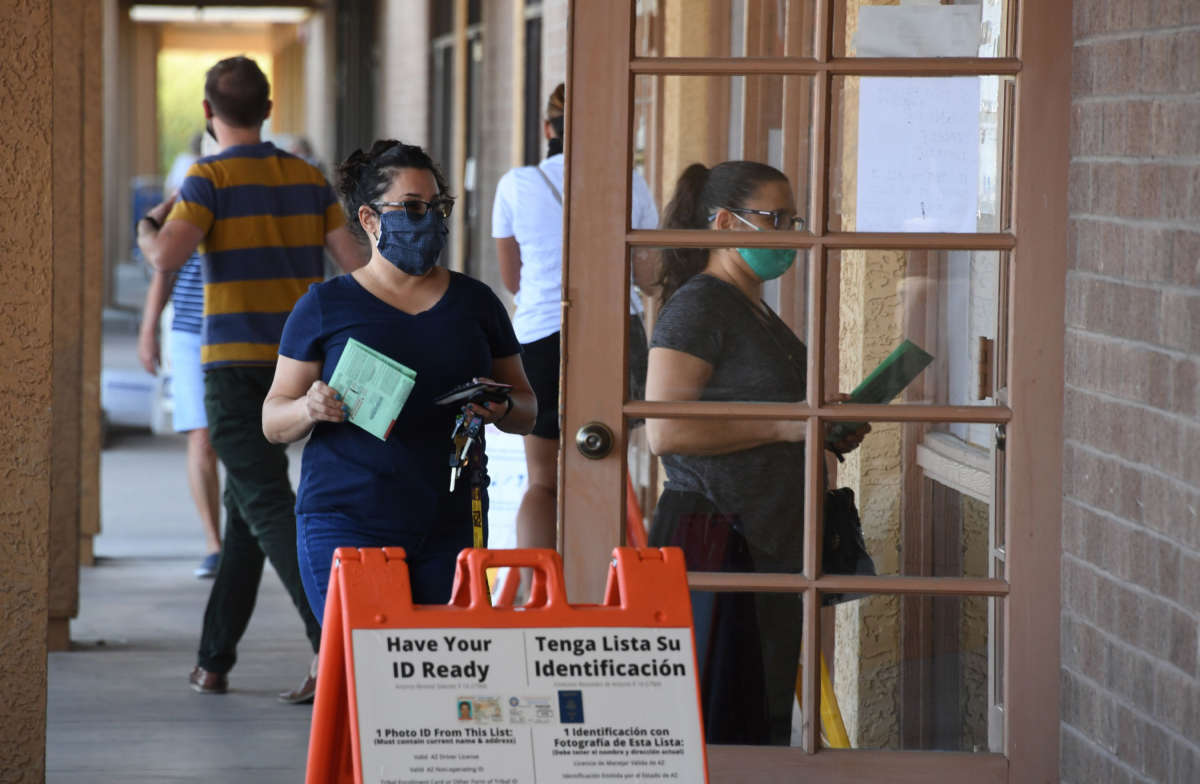The United States Supreme Court has upheld two controversial election laws in Arizona that voting rights advocates say will hurt the ability of voters in marginalized communities to cast their ballots.
Beyond its impact on Arizona voting laws, however, the case was also seen by many as a test of the remaining powers of the Voting Rights Act of 1965, and whether the Court would uphold one of its provisions to protect voters of color in that state and elsewhere in the future.
The 6-3 decision, voted along partisan lines, in Brnovich v. Democratic National Committee examined two types of voting restrictions: the first requiring election officials to discard ballots cast by voters who showed up at the wrong precincts; and the second making it a crime for anyone other than family members, caregivers or election officials to turn in a person’s absentee ballot to polling places.
The two changes to voting rules were initially challenged in 2016. Last year, the Ninth Circuit U.S. Court of Appeals ruled that the law was unconstitutional. But the Supreme Court, in its ruling today, overturned that decision, and found that Section 2 of the Voting Rights Act — which forbids changes to state’s election laws if they result in “a denial or abridgment of the right of any citizen of the United States to vote on account of race” — could not be applied to this case.
The decision could make it more difficult for challenges to restrictive voting laws in the future. Last week, the Department of Justice announced it would challenge state laws that create additional burdens to voting, but the ruling on Thursday will undoubtedly narrow to what extent the Voting Rights Act can be used for such challenges.
“Today, the Court undermines Section 2 and the right it provides,” Justice Elena Kagan said in her dissent to the majority opinion. “The majority fears that the statute Congress wrote is too ‘radical’ — that it will invalidate too many state voting laws.”
Recalling how the conservative bloc of justices had gutted a different provision of the Voting Rights Act in 2013, Kagan added:
What is tragic here is that the Court has (yet again) rewritten — in order to weaken — a statute that stands as a monument to America’s greatness, and protects against its basest impulses. What is tragic is that the Court has damaged a statute designed to bring about ‘the end of discrimination in voting.’
Voting rights advocates were similarly critical of the court’s majority opinion.
“We are fighting against the most concerted state-based effort to undermine Black voting strength since the Civil Rights Mvmt,” tweeted Sherrilyn Ifill, president and CEO of the Legal Defense and Educational Fund at the NAACP. “And in that context, the Supreme Court has again, & w/abandon, shredded a core provision of the Voting Rights Act.”
Senate Majority Leader Chuck Schumer (D-New York) also decried the Supreme Court’s majority opinion. “If you believe in open and fair democracy and the principle of one person, one vote, today is one of the darkest days in all of the Supreme Court’s history,” he said.
The ruling by the Court will add urgency to the Democrats’ push to pass the For the People Act, a bill that would enact many voting rights and elections reforms. However, a Senate filibuster by Republicans would likely block passage of the bill, and centrist Democrats have signaled they are unwilling to change filibuster rules in order to pass it, in spite of the fact that a majority of American voters favor doing so.
Join us in defending the truth before it’s too late
The future of independent journalism is uncertain, and the consequences of losing it are too grave to ignore. To ensure Truthout remains safe, strong, and free, we need to raise $46,000 in the next 7 days. Every dollar raised goes directly toward the costs of producing news you can trust.
Please give what you can — because by supporting us with a tax-deductible donation, you’re not just preserving a source of news, you’re helping to safeguard what’s left of our democracy.
